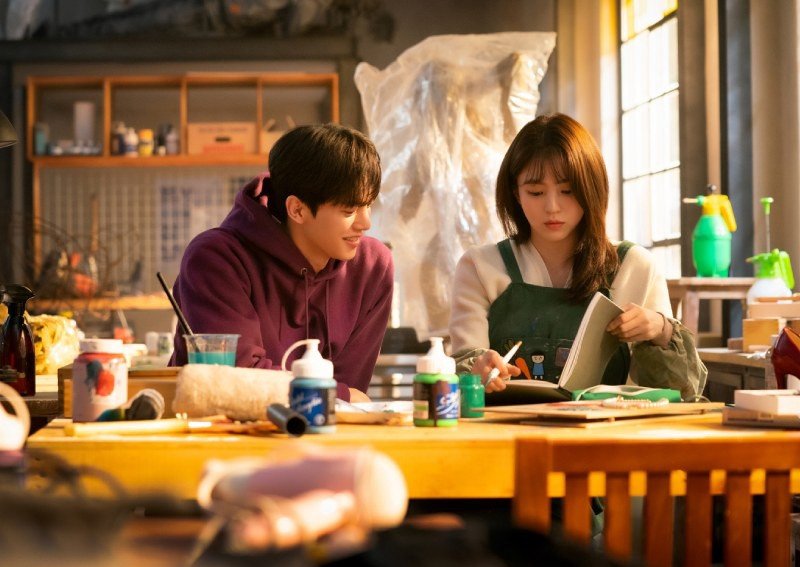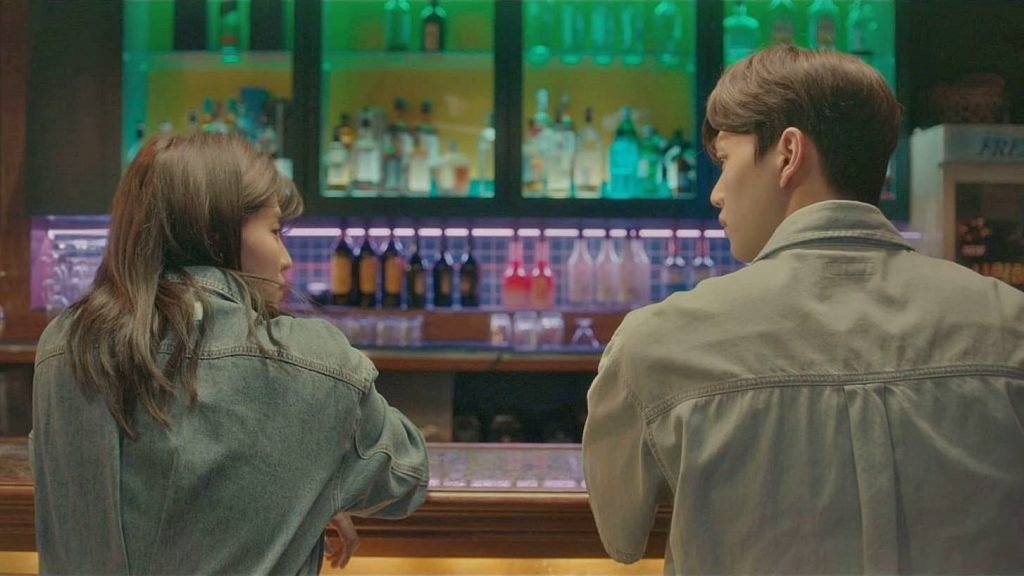Does Nevertheless Truly Deliver a Happy Ending? Netflix Adaptation Comes to a Sputtering End
By Daniela Calderon
Yoon Na Bi (left) and Park Jae Eon (right)
JTBC drama Nevertheless concluded with mixed reviews from audiences and overall low viewership ratings despite the rising popularity of leads Han So Hee and Song Kang. Based on the webtoon of the same name, sources within the drama touted the adaptation as “excessively sweet and dangerously sexy,” with many of the earlier episodes rated 19+ for scenes depicting smoking and sex, and an overall edgier portrayal of many of the young characters, the majority of them university students. The principal leads similarly revealed the drama would be atypical–that is, different from the “innocently youthful and lovey-dovey romances of the past.” Han and Song gushed over their respective characters — Yoon Na Bi, said to be disillusioned in love after a first failed relationship, and Park Jae Eon, an infamous playboy with no interest in dating. From the beginning, Netflix’s adaptation promised to be new and exciting, though with time sentiment soured among fans, leaving many disappointed with the final product.
Nevertheless debuted in June with a stellar episode capturing the demise of Yoon Na Bi’s first love presumably at the hands of an older, more-experienced colleague and a noticeably more established art sculptor, an ideal Na Bi attempts to replicate through her own educational endeavors despite the heavy emotional toll. Throughout the drama, we’re shown quiet glimpses into their failed relationship, from sunny evenings showered with laughter at cafes, to more intimate moments between the two in which Yoon Na Bi is all but coerced into engaging in sexual activity with her boyfriend. The relationship finally ends after an array of problematic circumstances, most notably after Na Bi uncovers her partner’s infidelity, effectively setting the stage for Park Jae Eon to sweep her off her feet. And make no mistake–he does just that.
The male lead is introduced as a foil to Yoon Na Bi; confident and incredibly suave, Park Jae Eon carries himself with all the security of a seasoned veteran. He’s used to calling the shots in his relationships or, more aptly, situationships. Sparks fly from their first encounter, and the remainder of the drama focuses on the pair’s efforts to alleviate the painstaking attraction they feel toward each other. Park Jae Eon is repulsed by the thought of commitment, in his mind a prelude to abandonment, while Yoon Na Bi struggles to reconcile his adoringly sweet words with his undeniably dubious actions, many of which harken back to those of her ex-boyfriend.
In the end, it’s evident to audiences that the relationship lacks perhaps one of the most important aspects of love: security. Having recently exited an emotionally abusive relationship, Yoon Na Bi is vulnerable to the pangs and twinges of Park Jae Eon’s oftentimes perfunctory demeanor and his insistence on maintaining a casual relationship. And as a result of this mistrust, Park Jae Eon struggles with feelings of jealousy in his twisted conquest of Yoon Na Bi, effectively complicating all means to an end for the pair. Both characters are susceptible to the pains and toils of love as a result of uncertainty and self-doubt, but the drama almost exclusively vacillates between prolonged stares and uncomfortable displays of sexual tension as a method of communicating their unmasked desire. Ironically, this only further underscores the couple’s lack of emotional intimacy while simultaneously drawing confusion from audiences. Why exactly are we rooting for Yoon Na Bi and Park Jae Eon? And is this drama really as revolutionary as initially promised?
There’s little motivation for viewers to invest themselves in this frustrating push-and-pull, with perhaps the most alluring aspect of the relationship being the fact the characters are played by Han and Song themselves, two conventionally attractive rising stars with rapidly broadening repertoires. But these types of on-screen relationships where success relies solely on star power are commonplace in Dramaland, and as viewership ratings are quick to tell, there’s a clear limit to the amount of permissible angst audiences are willing to stomach.



